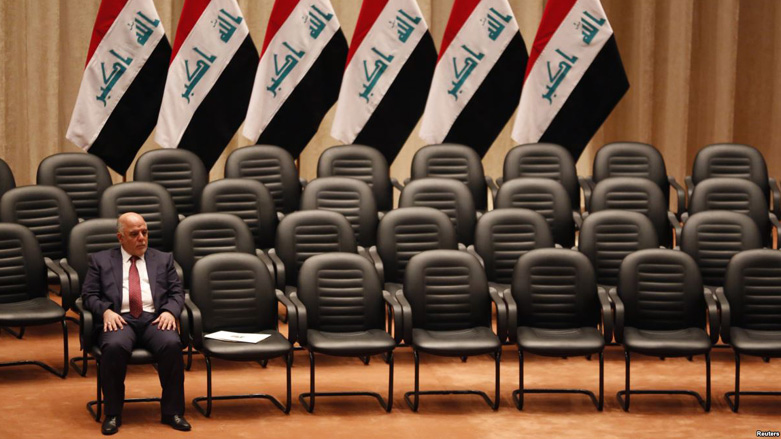Kurdish residents, officials call for withdrawal from Baghdad politics

ERBIL, Kurdistan Region (Kurdistan 24) – Residents and politicians in the Kurdistan Region have begun to call on Kurdish parties to withdraw from Baghdad following the announcement of an extension of a flight ban imposed on Kurdistan’s airports and the continued failure to release funds for salaries.
The Prime Minister of Iraq Haider al-Abadi has repeatedly stated over the past few months that Baghdad would send the salaries of Kurdistan Regional Government (KRG) employees, beginning with the health and education ministries. So far, this has not happened, leading many in the Kurdistan Region to label his statements ‘propaganda.’
After five months of the local economy being crippled by an international flight ban imposed by Baghdad on the Kurdistan Region’s two airports, the ban was extended for the second time. According to Kurdish officials, it will remain in place until May 31.
“There is no trust. We don’t trust Baghdad anymore. We heard a lot of things from them, but unfortunately, it's all lies, and nothing they have been saying has translated into actions,” Sleman Mohammed, a Kurdish resident of Erbil, told Kurdistan 24.
Jalal Salim, who lives in Sulaimani, gave his opinion on what the response of Kurdish politicians should be. “I urge all Kurdish lawmakers and officials in Baghdad, including Iraqi President Fuad Masum and Kurdish ministers, to withdraw from Iraq’s political process in response to the treatment of the Iraqi government toward the people of the Kurdistan Region.”
Negotiations between the Kurdistan Regional Government (KRG) and the Federal Government of Iraq have commenced in recent weeks to resolve disputes between them, primarily the Kurdistan Region's share of the federal budget, oil, and the flight ban.
“We need to boycott the upcoming Iraqi elections," said Dohuk resident Dildar Aziz, during a live broadcast by Kurdistan 24, immediately following the announcement of the flight ban extension. He then asked, "If the presence of Kurdish parties in Baghdad does not change the behavior of Iraqi officials toward the people of the Kurdistan Region, then why are we there at all?”
Kurdish lawmakers hold about 70 seats in the Iraqi Parliament out of a total of 328. Over the past few months, they have repeatedly boycotted parliament sessions, most prominently during the reading of the proposed 2018 budget bill, in which the share of the Kurdistan Region is decreased from 17 percent to 12 percent.
Arafat Karam, a Kurdish lawmaker and the head of the ruling Kurdistan Democratic Party's (KDP) bloc in the Iraqi Parliament is one of the politicians calling for a step back from Baghdad politics. Following the recent decision to extend flight ban, he said, there are two options left to Kurds.
“First, the Kurdish leadership could decide to completely withdraw from the political process in Baghdad, from the Iraqi Presidential post to the smallest employee in Baghdad,” Karam told Kurdistan 24 on Monday, stating that Kurdish unity is essential for any course of action.
For the second option, he suggested that Kurds could boycott the upcoming Iraqi elections with a united voice in response to Baghdad’s collective punishment and policies against the Kurdistan Region.
If either option were implemented, it could call into question the legitimacy of the upcoming elections. Combined with the widespread dissatisfaction with Baghdad's policies by Sunni-majority blocs, the entire political process, too, could potentially be called into question.
According to the system of power-sharing in Iraq, the Prime Minister post is held by a member of the Shia community, a Sunni Iraqi is speaker of parliament, and a Kurd holds the largely symbolic position of president.
Editing by John J. Catherine
